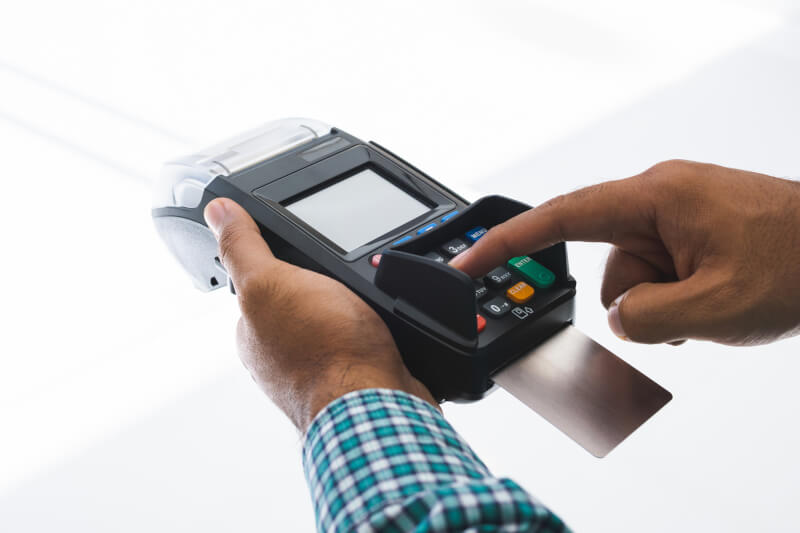When it comes to sharing our credit card information over the phone, it can still trigger some concerns, despite it being a common practice. Is it safe to disclose your credit card details verbally? What steps can you take to safeguard yourself from potential fraud? These are important questions, and we’ll delve into them to provide you with a comprehensive understanding.
Let’s begin with the legality of the matter. It is perfectly legal for merchants to request your credit card details over the phone. However, there are essential protections and security measures in place to ensure the safety of your sensitive information. Understanding these safeguards can help ease your worries.
Merchants are required to adhere to a set of security standards known as the Payment Card Industry Data Security Standard (PCI DSS) when conducting card transactions. The primary goal of these regulations is to protect the personal information of cardholders and the trillions of dollars worth of annual transactions. One of the key aspects of PCI DSS compliance is strong governance. Merchants must establish robust governance structures to oversee data security. Additionally, regular security reviews are conducted to identify and address vulnerabilities proactively.
Encryption plays a crucial role in securing your credit card information. It ensures that even if an unauthorized person gains access to the merchant’s stored data, the information remains unreadable. This means that even if data is stolen, the perpetrators would be unable to use the card details. Furthermore, access controls ensure that only authorized individuals can access cardholder data, adding an extra layer of security. While all card processing organizations are expected to follow compliance standards, mandatory audits are typically required only for those processing high volumes of transactions. Noncompliance can lead to significant fines, sometimes reaching into the millions of dollars if data breaches or misuse are linked to it in the future.
It’s important to note that these security standards apply regardless of the payment method you choose, whether you’re making a purchase in-store, online, or over the phone. When providing your credit card information over the phone, a real person usually takes the details and either enters them into a system or processes them manually using paper forms. To ensure compliance and security, the Payment Card Security Standards Council offers comprehensive best practices.
- Payment card information should be safeguarded from unauthorized access, copying, or scanning, especially on workstations. Merchants should establish clear policies to enforce this protection.
While these security measures are in place, there’s always a slight chance that your credit card information might be compromised due to unforeseen circumstances or the actions of ill-intentioned individuals. Here are some practical precautions you can take when sharing your credit card number over the phone:
Simple Precautions to Enhance Your Security
- Before sharing your credit card information, ensure that the person calling is legitimate. If you didn’t initiate the call, hang up and contact the company using the official contact information you’ve independently verified. Scammers often impersonate well-known companies to deceive their victims.
- If something doesn’t feel right, trust your instincts. If an offer sounds too good to be true or the person you’re speaking with raises suspicions, don’t hesitate to end the call. You can always return the call using the company’s official contact details if it turns out to be legitimate.
- Consider continuing to use a more secure payment method if you’ve already used one in the past.
- Make it a habit to record essential details, including the company’s name, the individual you interacted with, and the total amount being charged. Ask for a reference to a previous order or transaction if applicable. Request a receipt, and cross-check the transaction with your banking app to ensure it matches the receipt.
- In addition to the precautions mentioned above, consider using a virtual credit card to further reduce the risk of fraudulent charges.
Virtual Credit Cards
If you’ve linked your credit card to your phone for mobile payments, you likely already have some form of a virtual card. Some banks offer the option to generate a new credit card number associated with your existing card. Some even allow you to create unique CVV numbers (the three digits on the back of your card) for added security. This feature simplifies the process of canceling a virtual card or number in case of any issues, without affecting your primary card.
Responding to Suspicious Activity
In the unfortunate event that you suspect someone has gained access to your credit card information, it’s crucial not to panic but to act swiftly and decisively to protect your financial assets. Here’s a detailed guide on how to respond effectively:
One of the first steps you should take is to get in touch with your bank as soon as possible. You have a few options for blocking or canceling your card:
- Reach out to your bank’s customer service hotline, which is typically available 24/7. Inform them of your situation and request that your card be blocked or canceled to prevent any unauthorized transactions. The bank’s representatives will guide you through the process and ensure your card is secured.
- Depending on your bank and the specific circumstances, you may also have the option to block or cancel your card through your banking app or website. This convenient method can provide immediate protection, especially if you can’t reach your bank’s customer service right away.
It’s essential to bring this matter to the attention of the relevant authorities. Reporting the incident helps create a record and may assist in tracking down the culprits. Here’s what you should do:
- File a report with your local law enforcement agency. Provide them with all the details you have about the suspected fraudulent activity. This step is crucial in case further investigation is required.
After taking immediate action to secure your card and notifying the authorities, your vigilance should continue. Regularly monitor your bank and credit card accounts to spot any unusual or suspicious transactions. Be proactive in your surveillance:
- Regularly check your bank and credit card statements for any transactions that you did not authorize. Pay close attention to small, seemingly insignificant charges, as fraudsters often start with small amounts to test the waters.
- Utilize the online banking or mobile app provided by your bank. Dive into the card preferences settings, where you can take additional security measures:
- Limit Transactions by Value: Consider setting limits on the maximum transaction amount allowed on your card. This can help prevent large unauthorized charges.
- Restrict Types of Transactions: Some banks allow you to restrict the types of transactions that can be conducted with your card. For instance, you can limit it to only allow in-person transactions and disallow online or phone-based transactions.
- Set Up Alerts: Explore the alert options provided by your bank. You can configure alerts to notify you of any card activity, such as purchases exceeding a certain amount or transactions in foreign countries.
To bolster your security in the aftermath of a suspected credit card compromise, consider these additional protective measures:
- Contact the major credit bureaus—Equifax, Experian, and TransUnion—and request that they place a fraud alert on your credit report. This will make it more challenging for fraudsters to open new credit accounts in your name without your knowledge.
- Enroll in a credit monitoring program, which provides continuous tracking of your credit report for any changes or suspicious activities. These programs can promptly alert you to any unusual credit-related activities, helping you take swift action.
Is It Safe to Share Credit Card Information Over the Phone?
While it’s generally safe to share credit card information over the phone, it’s prudent to exercise caution and follow the security measures mentioned above. Although there’s always a level of risk involved, these precautions can significantly reduce the chances of falling victim to fraud or having your information compromised.
The current gold standard for security lies in virtual cards, which provide the flexibility to cancel specific card identities if needed, without affecting your entire card. This added layer of security offers peace of mind when sharing credit card information, even over the phone.
In conclusion, being aware of the security measures in place, verifying caller legitimacy, exercising caution, and considering virtual credit cards can help protect your credit card information when sharing it over the phone. While no method is entirely foolproof, these practices enhance your security and reduce the risk of falling prey to fraud.




